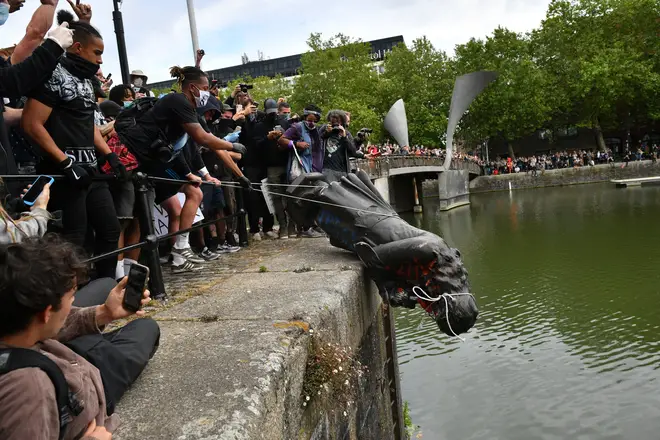
Richard Spurr 1am - 4am
7 June 2020, 17:05

Who was Edward Colston? Black history expert on the man behind the statue
Black Lives Matter protesters toppled the statue of slave trader Edward Colston in Bristol and threw the statue in a river.
Dr Kehinde Andrews is professor of Black Studies at Birmingham University and he was on hand to explain the significance of the toppling of the statue of Edward Colston, a slave trader who was born and lived in Bristol.
He told Ian Payne that "Bristol became a city because it was a port during the slave trade" and Mr Colston was central to this expansion of Bristol. Dr Andrews told Ian that there has been a "long standing campaign to bring down the statue" and Black Lives Matter protests made the toppling all the more likely.
Interestingly, he pointed out to Ian that "these protests aren't just about racism in America, they're about racism here" and the toppling of the statue of Mr Colston is testament to that. "He enriched himself off the trade and invested it into the good of Bristol" Dr Andrews told listeners, and this is why his statue was present in the first place.
Asked for his opinion on the action, Dr Andrews assured Ian that he agreed with the toppling of the statue. "Why would you want to support and revere a slave trader" he asked.

The Grade-II listed bronze statue, which stands on Colston Avenue, was pulled down on Sunday by Black Lives Matter protesters.
There were cheers as the controversial monument was pulled down by a group, who had scaled it before attaching ropes to bring it crashing to the ground. It was then rolled to the nearby harbour and pushed into the water.
The merchant has long been associated with the city, but in recent years attempts have been made to remove his name from history, including the renaming of the Colston Hall venue, because of his past involvement in the slave trade.
He made his fortune through slave trading and became an official of the Royal African Company, which transported slaves to the US.